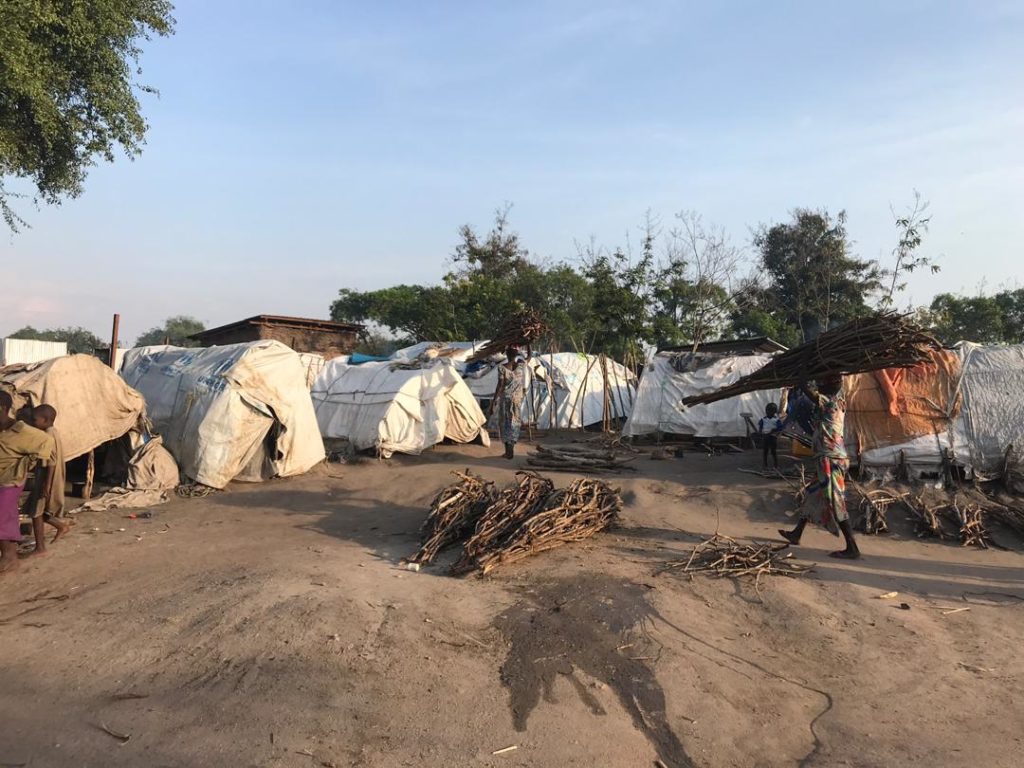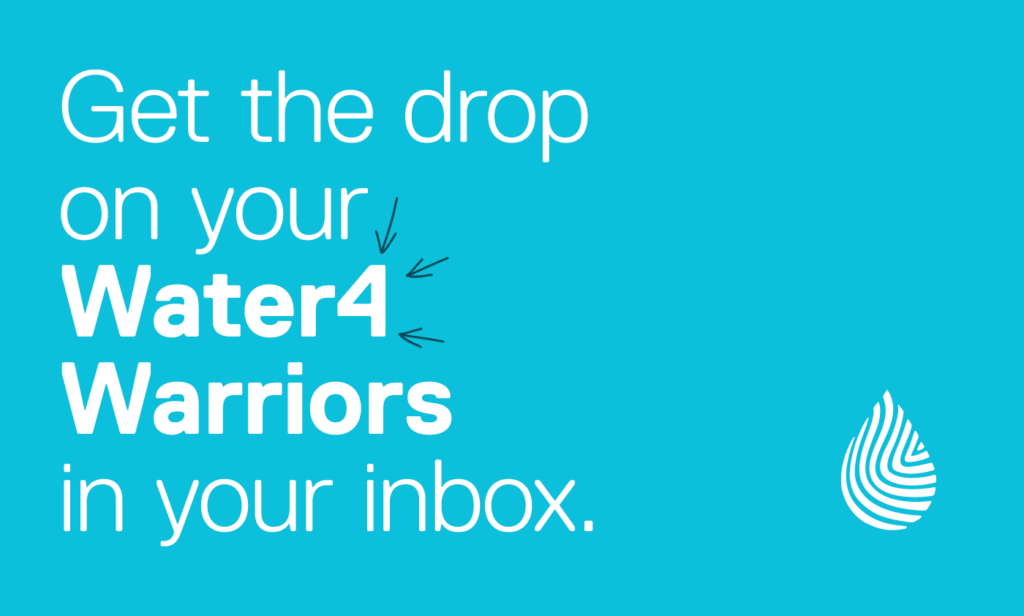The Challenge
The Democratic Republic of Congo (DRC) suffers from high rates of poverty, ethnic conflict, and frequent outbreaks of disease, including Ebola. As a result of the violence, there are 3.8 million Internally Displaced Persons (IDPs) within the country’s borders, the largest IDP population in all of Africa.
These massive burdens compound the challenge of providing safe water, sanitation and hygiene (WaSH) services for all, which leads to a vicious cycle of poor health and low potential for development. For example, a lack of adequate WaSH services is one factor contributing to the high incidence of malnutrition; currently, 43 percent of children living in DRC suffer its effects, including physical stunting and lower cognitive development. WaSH services are, therefore, critical. A 2017 WASH Poverty Diagnostic shows that children under five in DRC who have access to uncontaminated, safely managed water, see a significant reduction in such physical and cognitive impairments.
Water 4’s Response
Water4 has a mission to equip social entrepreneurs in 13 countries in Africa towards putting an end to the global water crisis. Water4 does this through public-private partnerships (PPPs) that catalyze faith and innovation as tools to help re-imagine local solutions. Water4 PPPs are customizing services for communities and schools in need of safe water.In the DRC, Water4 supports water businesses in Katanga and Ituri Provinces. Together they invest in local capacity to drill water wells, maintain water systems, and promote better hygiene practices to fight disease and malnutrition. These Water4 partnerships, developed over the past 10 years, have helped to lay the groundwork necessary to respond rapidly when emergencies hit, helping to bolster the resilience of communities in the midst of crisis.
Water4 in Ituri Province
More than 250 ethnic groups have been identified in DRC. Ituri Province, located in the northeast of the country, is home to several different ethnic groups including the Pygmy people of the Ituri Rainforest. The Pygmy populations are oppressed by other groups, and in some cases serve as modern-day slaves. Where their land lacks legal protection, Pygmy groups farm the land on behalf of other groups with little to no pay. And in some areas the food supply is further at risk due to deforestation and gold mining activities.
Approach
AEDR is a well drilling company based in the region’s capital city, Bunia, that provides water services in urban and rural areas. AEDR (formerly known as Ituri Drillers) began to work with Water4 in 2013 in an effort to reach excluded Pygmy communities. Through joint efforts with Ituri Drillers, a negotiation was made to purchase the freedom of the Pygmy people in exchange for new water wells drilled on the land, which would serve both ethnic groups. Throughout 2014, AEDR drilled water wells on land acquired for 1,200 newly freed people. Today, the enterprise continues to work for peace between various communities through the provision of safe water for all. In 2018 AEDR, in partnership with Water4 and Pacha Soap, also began piloting an enterprise-based model for soap production in Bunia.
Including the Internally Displaced
In June of 2019, Bunia saw an influx of internally displaced persons (IDPs) to the areas where AEDR works. The number of households in Telega village, in the north east of Bunia, nearly quadrupled as people fled nearby Djugu Territory. Many of the displaced were hosted by inhabitants of the village in their own homes.
Through its existing partnership with AEDR, and its capacity to raise funding from private donors on an emergency basis, Water4 was able to respond to the rapid influx in a timely manner. By early July AEDR was already drilling new boreholes and water was supplied beginning August 9, 2019. The chief of Telega village recounts the impact on over 2,000 households in this article.
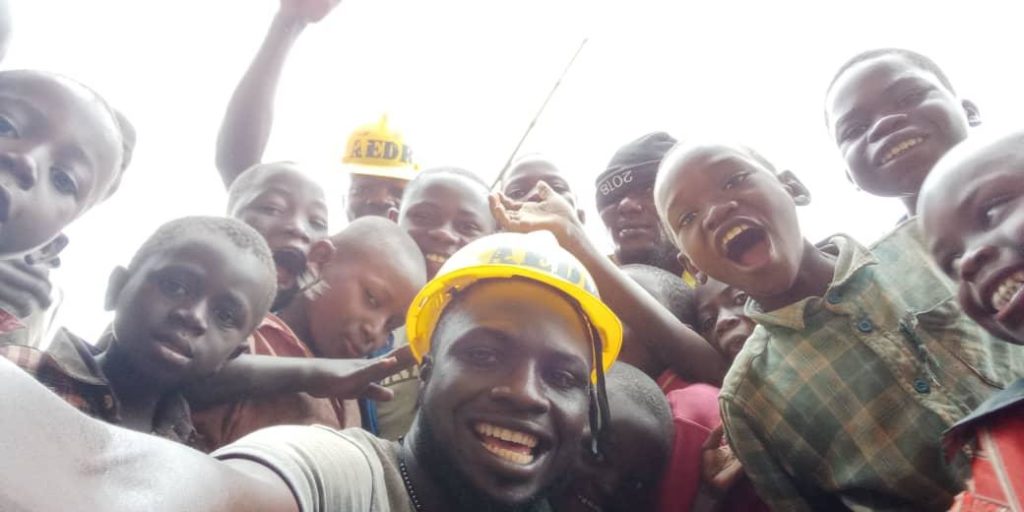
Business Model
Local laws govern the maintenance of handpumps within communities. AEDR strives to provide sustainable and locally maintained safe water systems using a service agreement model in which communities pay a small, incremental fee for the AEDR team to monitor and service the wells within the village as needed. AEDR is “on call” to fix system breaks within 24-48 hours of notification.
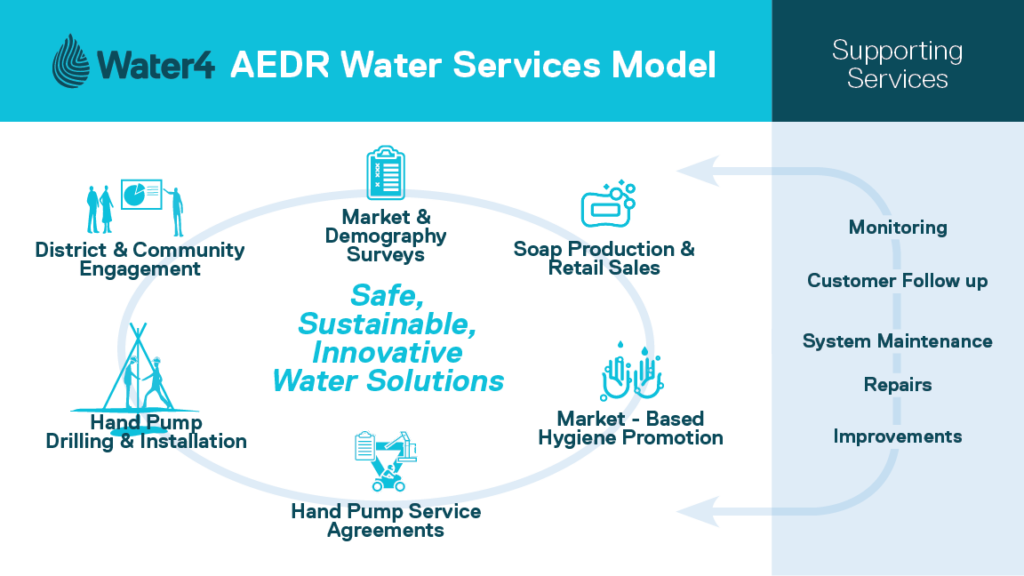
The service agreement between the enterprise, the government, and the community, requires communities to pay AEDR a low monthly fee to ensure that their pumps continue to function long-term. Revenue from the service fees contributes to AEDR’s financial sustainability and thus its capacity to continue expanding access to new areas. AEDR’s annual revenue has reached between US$250,000 and US$300,000, allowing the enterprise to accomplish 40-60 new water projects, serving a total of 12,000-16,000 people with safe water, annually.
In an effort to further improve hygiene and sanitation in areas where AEDR works, Water4 partnered with Pacha Soap and AEDR to construct a new Huru Soap Center, which employs 6 people in the production of soap and WASH training. The additional hygiene service has enabled Water4 to utilize a community-based “trainer of trainers” model that can be replicated in the other 12 countries where Water4 is currently active.
Results: – Since 2015 the Water4/AEDR partnership has brought:
● Access to safe water for 27,198 people
● Completion of 144 water projects
● WASH training to more than 13,000 people
● 6 full time jobs in soap making
● 1,100 kg of soap produced
● 1,000 bars of soap sold to schools
The Way Ahead
Due to the region’s volatility, AEDR’s focus has traditionally been on providing low-cost water solutions that utilize manual drilling technology and hand pumps in the majority of communities where they work, rather than more expensive piped systems. However, Water4 and AEDR are working together to roll out a new small piped network system called NUMA, to provide major population centers with safe and reliable piped water. These larger water systems would reach more people while enhancing the financial sustainability of the provider. Other medium- term partnership goals are listed below.
Plans to scale-up the service delivery model in the medium-term:
● Construction of 43 new water points serving 14,200 people
● 10 private maintenance contracts with 10 communities
● Continue rapid response efforts for IDPs through support from Water4 emergency funding for an additional 24 wells
● Engagement strategy with the national government to seek partnership support for an area-based coverage model
● Production of 2,100 kg of soap per month
● Selling soap in communities where WASH training has been completed and water points have been constructed
● Selling soap to eight additional schools in Bunia
